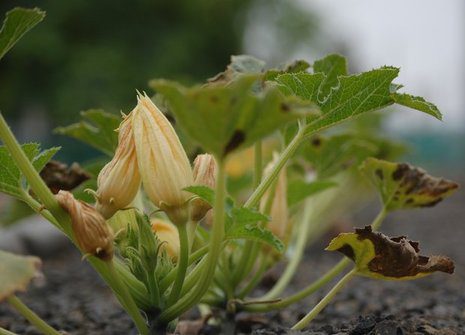Our hearts have been designed for the kind of kinship and connection that can only come from being in a community and together with other people. God knew from the very beginning that this type of existence would be the best one: an existence that helps to sustain, empower, and encourage others to live their best lives while simultaneously giving meaning to and enriching our lives. This is the miraculous gift of community; without it, we’re missing out on one of the biggest, most significant graces of being human.
In his now-famous “Letter from a Birmingham Jail” (April 16, 1963), the Reverend Dr. Martin Luther King Jr. spoke of our basic need to care for each other and to ensure one another’s wellbeing. He asserted that the ability to safeguard each of our human rights is contingent on the human rights of another individual being upheld, regardless of their place on the map. In a defense of his efforts to seek civil rights as an “outsider” in Birmingham, King said: “Injustice anywhere is a threat to justice everywhere. We are caught in an inescapable network of mutuality, tied in a single garment of destiny. Whatever affects one directly, affects all indirectly.”
King understood that we, as individuals, cannot even live a waking day without engaging in what he described as the “global village” or the “world house.” He spoke of how connected we truly are—of how connected we ought to be—in his 1967 “Christmas Sermon on Peace” at Ebenezer Baptist Church:
Did you ever stop to think that you can’t leave for your job in the morning without being dependent upon most of the world? You get up in the morning and go to the bathroom and reach over for the sponge, and that’s handed to you by a Pacific Islander. You reach for a bar of soap, and that’s given to you at the hands of a Frenchman. And then you go into the kitchen to drink your coffee for the morning and that is poured into your cup by a South American. And maybe you want tea: that’s poured into your cup by a Chinese. Or maybe you desire to have cocoa for breakfast, and that’s poured into your cup by a West African. And then you reach over for your toast, and that’s given to you at the hands of an English-speaking farmer, not to mention the baker. And before you finish eating breakfast in the morning, you’ve depended on more than half the world. This is the way our universe is structured. It is its interrelated quality. We aren’t going to have peace on Earth until we recognize this basic fact of the interrelated structure of all reality.
Today, the same remains true. Pause for a moment in your reading and examine the labels on your clothing. Find out where your favorite shirt or dress was made. And while you’re up, find out where the candle you burn to help you relax was produced. Look much closer than the label and ask yourself who made the textiles? Where’s the wax from?
Recognizing that our lives are interconnected is the first necessary step in seeking to understand just how much we need each other, and our call to stand together. Community is necessary for us personally; but it is also a prerequisite of our considerations about how we might respond to—and try to solve—the issues and the injustices that we witness in the world. We need to understand this before we can take a stand and make any significant strides toward serving one another well. This is the main message we must all realize and come to recognize. I believe that this was Paul the Apostle’s main message when he wrote to the church in Corinth: If one member suffers, all suffer together with it; if one member is honored, all rejoice together with it (Cor. 12:27 NRSV).
When we start to see the world through a lens of we, we will fully grasp what Father Boyle means when he says: “There is no ‘them’ and ‘us.’ There is only us.” By understanding our need for one another, and decreasing our levels of isolation, we can actually begin to enter into a spirit of community wholeheartedly, becoming proximate to our brothers and sisters who are in need: our neighbors.
One thing that I’ve discovered during my time working with communities is just how important the idea of—and the reality of embracing—proximity is. Embracing proximity is not only the means by which we get closer to real-life issues but also how we enter into and develop deep relationships that could be beneficial to our own lives as we seek to achieve justice in the world. Accepting the need to live in proximity to others is how you become seen as an individual—as well as being, in turn, the way in which you have a chance to see and to affirm the dignity of others. Being in proximity to people is how we connect with others to seek justice and change the world. Jesus connected with people that he was proximate to so why would it be any different for us? Scripture highlights Jesus’ nearness to humanity in his ability to empathize and sympathize with our earthly sufferings in Hebrews 4:15-16:
For we do not have a high priest who is unable to sympathize with our weaknesses, but we have one who in every respect has been tested[d] as we are, yet without sin. Let us therefore approach the throne of grace with boldness, so that we may receive mercy and find grace to help in time of need.
Our lack of proximity to one another not only causes us to “otherize” people but it creates more division. No real solutions are developed when we are distanced from each other.
Jesus made a lifestyle of connecting with those who were not like him. He ate with the misfits, the tax collectors, and the sinners. When was the last occasion on which we made time to truly connect with someone whose worldview or status was vastly different from ours over a meal? When was the last time that you engaged in a meaningful conversation without trying to politicize a Messiah that came to give all for all?
Adapted from When We Stand by Terence Lester. Copyright (c) 2021 by Terence Brandon Lester. Published by InterVarsity Press, Downers Grove, IL. www.ivpress.com
Do Good:
- Read “When We Stand: The Power of Seeking Justice Together” (IV Press, 2021) by Terence Lester.
- You may think your day is too filled to the brim for anything more…but it’s in his presence that you find rest. Where you are assured God is doing a beautiful work in you. Where you find a way to love—because he first loved you. Get inside the Caring Magazine Scripture Study Collection and find a suite of free, printable Bible studies to guide you through topics from New Beginnings Through Forgiveness, to Understanding our Imago Dei or Life Hacks From David.
- Subscribe to the Do Gooders Podcast and tune in for good ideas. Get inspiration from the experts on how to do good and find meaning along the way—and join thousands in making an impact for good right where you are.

















